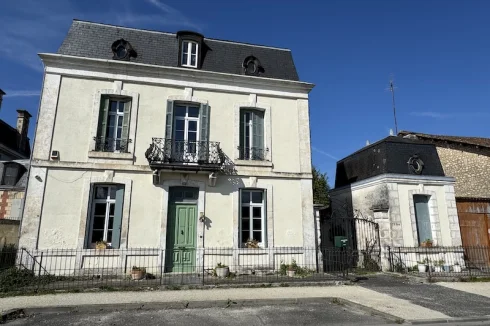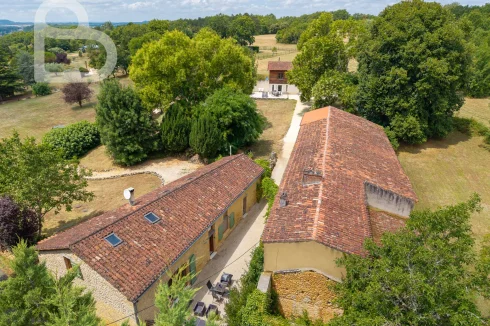Notaires and Fee Sharing on Property Transactions
Wednesday 08 September 2021
Buyer and seller can each appoint their own notaire, but some notaires seem unwilling to act on this basis.
Although in sale and purchase property transactions in France a single notaire frequently acts for both parties, it is difficult to see how that can be accomplished in a satisfactory manner, for as each party has their own interests to protect, the scope for independent advice and action is inevitably compromised.
Notaires realise that dilemma, which they invariably resolve by restricting their role to the mechanical implementation of the agreement reached, minimising any advice they offer to either side. The broad approach that is adopted is that if the question is not asked, there is no need to provide an answer.
Yet agreement between buyer and seller is rarely complete and the search enquiries undertaken by the notaire will be primarily restricted to establishing that the seller has proper title to the property.
The shared use of a notaire is particularly to the disadvantage of the buyer, who will be faced with the consequences of their purchase, and whose legal means of redress against a buyer is fraught with financial and juridical obstacles and delays. Standard forms of contract used by notaires (and estate agents) also tend to favour the buyer.
The lack of understanding of the law and the French language amongst international buyers leaves them far more in need of independent advice than is likely to be the case with the seller.
Nevertheless, in most such transactions, the working assumption is that a single notaire will be appointed, who will also more often than not be selected by the seller and the estate agent.
In the euphoria of buying a home in France, and in the absence of information about the local notarial network, international buyers who do not know differently unwittingly go along with it.
Yet both buyer and seller are perfectly entitled to appoint their own notaire, without any increase in the fee to the buyer, who is the party responsible for the notaire fees (and taxes).
Thus, on the free choice of a notaire, Article 4 of the deontological rules by which notaires are obliged to act states that: 'Toute personne physique ou morale a le libre choix de son notaire.'
As far as sharing the fee is concerned, under Article 10 of the Decret n°2016-230, 26th Feb 2016 the fee that would have been received by one of them is simply shared between the two (or more) notaires involved. The regulation states specifically:
'L'intervention de plusieurs notaires dans la rédaction ou la réception d'un acte n'en augmente pas l'émolument, sauf si l'acte est rétribué en fonction du nombre d'heures passées.'
This obligation is reinforced by the professional rules of conduct by which notaires are obliged to act, which states that:
'Tout notaire désigné par un tiers …..doit faire connaître à l’avance aux parties àl’acte qu’ils sont en droit d’être assistés par un notaire de leur choix, sans qu’il en résulte une augmentation des frais et des émoluments, et ce, pour s’abstenir de tirer avantage de sa situation au détriment de ses confrères.'
The fee payable in a sale and purchase transaction is around 1% of the sale price, to which must be added stamp duty of circa 6% to 7% of the purchase price.
Just how the fee is spilt between the two notaires is not generally a matter for negotiation between the notaires, or involvement of their clients, as the regulations set out how it should be done. Broadly speaking, the notaire who prepares the conveyance receives a 20% top-slice of the fee, and the remaining 80% is divided between them.
Nevertheless, as your mails to us indicate, some of you who have tried to engage your own notaire have found it difficult to do so. As is usual, it does seem that only a minority of notaires appear reluctant to act on a joint basis, but any unwillingness to so is illegal.
We have yet to hear of instances where a notaire has explicitly refused to act; to do so would be in breach of their professional, public service obligations, so the usual way out for a notaire is simply for them to fail to respond to your solicitations.
No doubt one of the reasons for their silence is that they do not consider a shared fee to be sufficient remuneration, but a notaire is unlikely to be so candid as to say so.
The shyness about willing to act could also be that they find it irksome to work in a more conflictual manner, but once again their code of conduct does not allow them to refuse to work alongside another notaire merely because they find it disagreeable to do so, stating:
'Les clients ne doivent pas connaître des difficultés entre notaires relatives à l’attribution des minutes des actes les concernant et au partage des émoluments.Tout notaire doit s’efforcer loyalement de faire accepter à son client les décisions du présent règlement ou, en cas de difficultés sur l’interprétation de ce dernier, l’arbitrage de l’organisme appelé à l’interpréter. Toute action contraire doit être considérée comme un acte de mauvaise confraternité.'
However, the problem for either buyer or seller faced with a blank response from a notaire is just what they do about it. A formal complaint to the regulatory body may well similarly fall on deaf ears and, even if it does not, resolving the matter will take time that neither buyer and seller have available.
If you are unable to find a notaire willing to act for you, then another approach is to accept that you may be obliged to use only one notaire, but for you to make the selection. The law grants the right of choice of the notaire to the buyer and the seller cannot legally impose their own notaire on a shared basis. That might require some prior planning and an introductory visit to one or two notaires, but you are likely to benefit from making such enquiries.
Some buyers would benefit from having their own specialist English language speaking French property solicitor alongside them, as they can frequently add substantial value to the scope and depth of the enquiries that are carried out, so that might be another solution.
Although the right of choice of your own notaire is possible for sale and purchase transactions, not all services provided by notaires are regulated in this manner. They include certain services that are provided on a fixed fee basis and those provided in connection with an inheritance, when only one notaire will act.
Similarly, if the notaire does not participate in the preparation of the deed, but they are appointed on the basis of merely offering general advice, their fee is not shared.
Finally, although the law states that the fee should be shared, there is nothing to prevent client and notaire agreeing between them to a negotiated fee, but if this is to be the case it should on the basis of a written agreement.
As always, if in doubt, ask and obtain confirmation.
Related Reading:
Thank you for showing an interest in our News section.
Our News section is no longer being published although our catalogue of articles remains in place.
If you found our News useful, please have a look at France Insider, our subscription based News service with in-depth analysis, or our authoritative Guides to France.
If you require advice and assistance with the purchase of French property and moving to France, then take a look at the France Insider Property Clinic.





